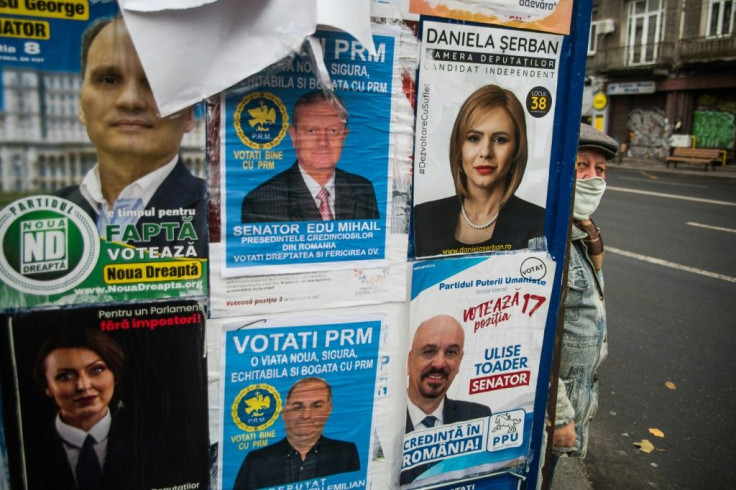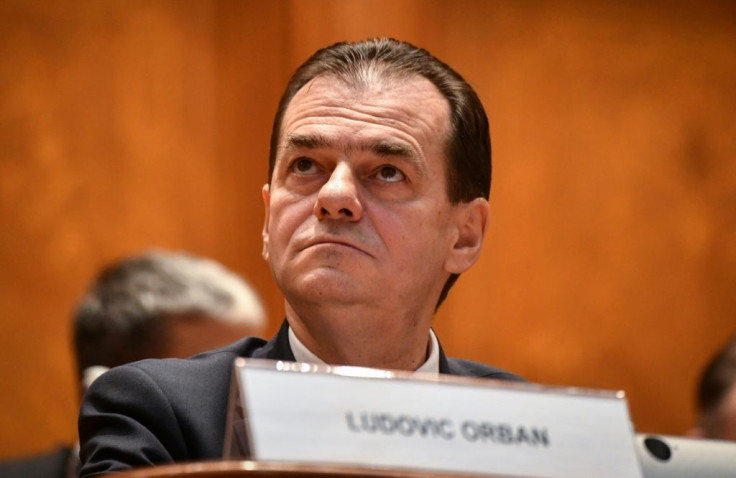Romania's Liberals Favourites In General Election
Romanians head to the polls in parliamentary elections on Sunday, with pro-European liberals tipped to win despite criticism for their handling of the coronavirus pandemic while in government.
In a region where populists and nationalists have recently gained ground, liberal Prime Minister Ludovic Orban, who has been running a minority government for the past year, has pledged to modernise one of EU's poorest countries and keep it on a "pro-European" path.
A recent opinion poll published by the IMAS institute put Orban's National Liberal Party (PNL) on 28 percent of the vote, ahead of the main opposition Social Democratic Party (PSD) on 23 percent.
The recently-formed centre-right alliance USR-Plus are on 18 percent, a result which would bolster their growing influence in Romanian politics.
While turnout is expected to be low at less than 40 percent, analysts say this isn't only due to the difficulties of holding an election in a pandemic.
"Many Romanians are demotivated because they believe that all parties are the same," said Liliana Popescu, political science professor at the National University of Political Studies and Public Administration.
According to her, this impression has only been reinforced by several instances of candidates defecting between the main political parties.

The liberals have the advantage of being supported by President Klaus Iohannis, who has brushed aside criticism that he is disrespecting his constitutional role by campaigning for the PNL.
The left-wing PSD is the heir to the former Communist Party and has dominated Romanian politics over the past 30 years.
It won by a landslide in the previous elections in 2016, but its years in power were marked by massive anti-corruption protests and spats with Brussels over controversial judicial reforms.
"The PSD deeply disappointed voters who were interested in the rule of law, equality before the law and democracy," says Popescu.
Weakened further by the imprisonment on corruption charges of its former leader Liviu Dragnea, the PSD was removed from power through a no-confidence vote at the end of 2019.

"The stakes in the elections are huge," Orban said in a recent interview with AFP.
"A high turnout is crucial for Romania to continue moving in the right direction, namely respect for fundamental rights and freedoms, rule of law, and being a loyal member of the EU and NATO", he said.
The new head of the PSD, Marcel Ciolacu, who has carefully distanced himself from Dragnea, has accused the government of "incompetence" and failing to keep the spread of the coronavirus under control.
"The real virus that Romania is facing is (...) the PNL," he said recently said on his Facebook account.
"To stem the pandemic, we must first prevent the liberals from staying in power, from closing schools, churches and markets," he said, reflecting the PSD's sceptical attitude towards anti-coronavirus measures.
The current government insists a full-blown second lockdown is not on the table and so far it favoured night-time curfews and local restrictions to try to stem the effects of the pandemic's second wave.
Epidemiologists fear this will not be enough to ward off an explosion of cases in the weeks to come.
Understaffed and with poor infrastructure, Romania's hospitals are already struggling to cope with the influx of patients in intensive care units.
The country of 19 million inhabitants has recorded around 500,000 cases of Covid-19 and 12,000 deaths.
As well as battling the pandemic, any new government will also have to engage in a difficult balancing act to revive the economy and reduce the public deficit, estimated at being more than nine percent of GDP in 2020.
That could be made trickier by extra spending coming down the track in 2021 in the form of a 40 percent hike in pensions and a doubling of family allowances.
That extra spending was voted through by the previous PSD-led government despite warnings from Brussels.
© Copyright AFP {{Year}}. All rights reserved.





















